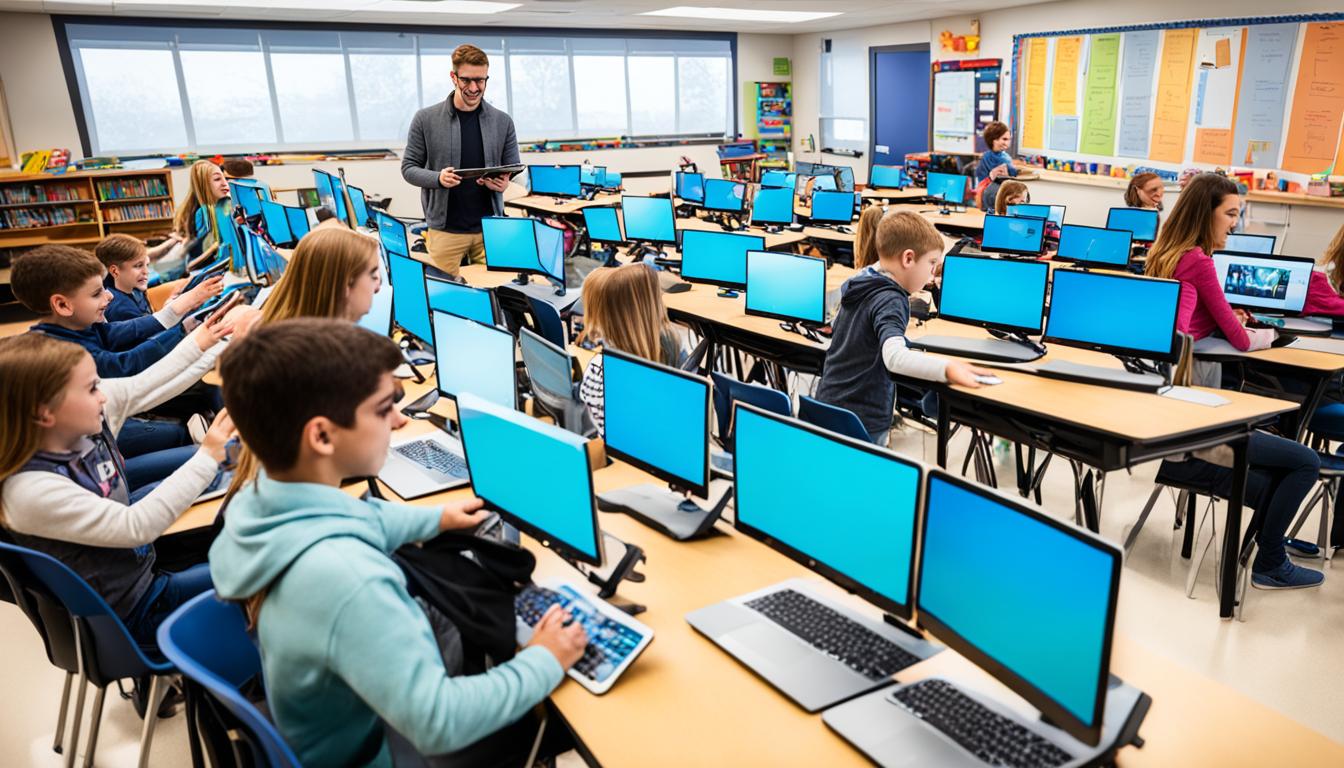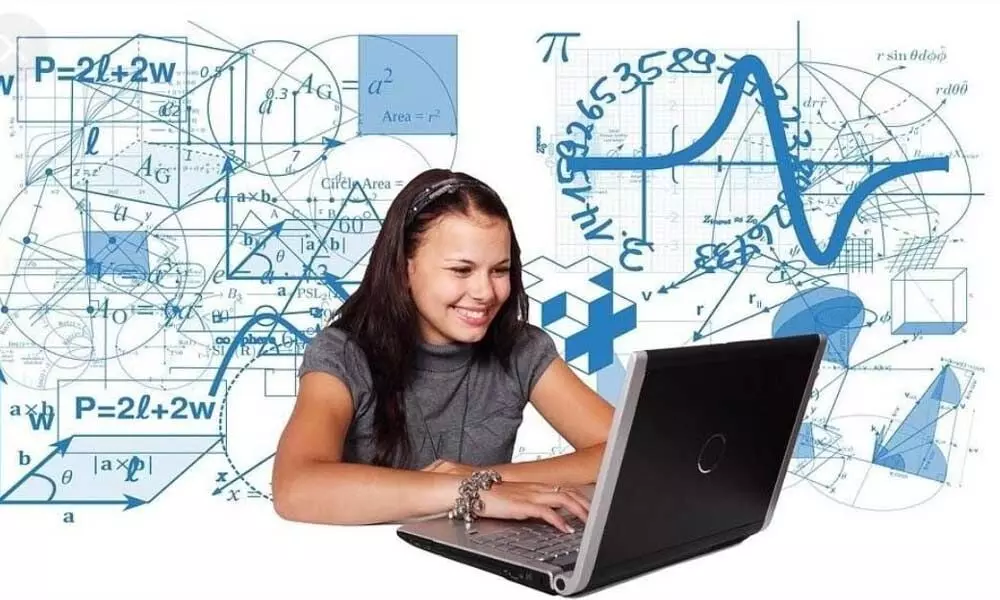The Duty of Innovation Education in Shaping Tomorrow's Labor force: Insights for Educators
As the landscape of employment remains to progress intoxicated of technical improvements, the role of modern technology education comes to be progressively vital in preparing pupils for future occupations. Educators are tasked with equipping learners not just with technological efficiency however also with important soft skills such as essential reasoning and collaboration. By checking out innovative curricular strategies and fostering partnerships with market leaders, we can much better understand exactly how to properly cultivate a workforce that satisfies the needs of a digital economic situation. What techniques can teachers use to bridge the space between education and market assumptions?

Value of Technology Education And Learning
In an increasingly digital globe, the value of technology education and learning can not be overstated. As markets evolve and integrate innovative innovations, a versatile education in modern technology becomes necessary for both expert and individual development. Innovation education and learning outfits individuals with the abilities required to navigate the complexities of modern-day offices, fostering adaptability in an environment defined by quick change.
Furthermore, innovation education and learning advertises critical thinking and problem-solving skills. Insurance. By involving with different technical tools and platforms, learners improve their capacity to evaluate info, draw connections, and create innovative options to real-world issues. This academic focus not just prepares trainees for specific jobs yet also cultivates an attitude that is important for long-lasting understanding
In addition, innovation education plays an important role in connecting the electronic divide. By offering equitable accessibility to technological resources and training, universities encourage all students, no matter of socioeconomic status, to take part in the electronic economic situation. In verdict, as we move additionally right into the 21st century, prioritizing innovation education and learning is essential for preparing a skilled workforce efficient in prospering in a significantly interconnected and highly driven international landscape.
Key Skills for Future Labor Force

Furthermore, effectiveness in digital literacy is indispensable; workers need to navigate a selection of software devices and platforms successfully. Cooperation skills are also paramount, as the majority of modern workplaces stress teamwork across varied, usually remote, atmospheres. Additionally, imagination and advancement will certainly be critical in driving the development of new services and items in an affordable market.
Recognizing data analytics and cybersecurity concepts is increasingly important, reflecting the expanding importance of data-driven decision-making and securing sensitive information. A fundamental expertise of synthetic knowledge and maker understanding will equip future specialists to take advantage of these technologies successfully.
Educators needs to therefore focus on the assimilation of these skills into their innovation educational program, guaranteeing trainees are well-appointed to fulfill the demands of a vibrant task market. By cultivating these proficiencies, we prepare students not just for their initial tasks, however, for lifelong jobs in an ever-evolving technological landscape.
Integrating Technology in Educational Program
Integrating modern technology right into the educational program is crucial for modern education, with 85% of teachers recognizing its value in enhancing student involvement and finding out outcomes. As innovation proceeds to evolve, instructional institutions should adjust to prepare students for a future where electronic proficiency is critical. This combination includes not only making use of digital devices but also the unification of innovative sources that cultivate critical reasoning, creative thinking, and collaboration.
A well-structured innovation educational program need to align with academic criteria while addressing the varied learning requirements of pupils. This can include a mix of on-line systems, interactive software, and multimedia sources that provide to different discovering styles. Furthermore, educators should receive adequate training to successfully carry out these technologies, making sure that they are outfitted to assist in a highly enriched learning atmosphere.
In addition, incorporating technology right into the educational program enables real-world applications, bridging the void in between theoretical knowledge and functional abilities. By engaging trainees with immersive and pertinent experiences, educators can grow a labor force that is more information not just technologically skilled but prepared and also versatile to fulfill the challenges of tomorrow's job market. Stressing innovation in education is not just a trend; it is a requirement for shaping proficient future specialists.
Innovative Teaching Strategies
Accepting cutting-edge mentor techniques is essential for cultivating a interesting and efficient knowing atmosphere in today's academic my review here landscape. In technology education, educators should use approaches that not only capture trainees' interest but additionally equip them with the skills needed for future jobs. One effective strategy is project-based knowing, which encourages pupils to participate in real-world troubles, promoting crucial thinking and cooperation.
In addition, incorporating gamification can improve motivation and retention, making complicated concepts more delightful and obtainable. Make Money. Turned class, where pupils evaluate instructional material at home and take part in hands-on tasks throughout course, additionally show useful by optimizing classroom communication and application of knowledge
In addition, making use of technology-enhanced learning tools, such as simulations and virtual laboratories, allows students to experiment and discover in a safe atmosphere, cultivating development. Individualized finding out experiences, customized to individual trainee requirements and discovering styles, can even more enhance engagement and achievement.
Ultimately, by incorporating cutting-edge and diverse mentor approaches, educators can develop a vibrant learning atmosphere that prepares students for the challenges of tomorrow's labor force, ensuring they are not just experienced but additionally adaptable and knowledgeable.
Collaboration With Market Allies
Teaming up with market partners is vital for bridging the space between education and the workforce. Such partnerships offer pupils with functional insights and experiences that are essential for their expert development. By engaging with companies, educators can better line up curriculum web content with the skills and proficiencies that employers seek. This alignment ensures that students are not only fluent in theoretical knowledge however also have the hands-on experience required for their future occupations.
Industry partnerships can take many forms, including teaching fellowships, mentorship programs, and visitor talks. These initiatives allow students to apply their knowing in real-world contexts, promoting a deeper understanding of industry criteria and assumptions. Moreover, these cooperations can lead to the development of customized programs that resolve certain workforce needs, enhancing the importance of modern technology education.
Furthermore, industry companions can contribute sources, such as devices and funding, that enhance instructional offerings. By cultivating a society of partnership, instructors and sector leaders can function with each other to grow a knowledgeable workforce that is prepared to fulfill the difficulties of tomorrow. Eventually, these collaborations are vital for creating a smooth change from education to work, benefiting both employers and trainees alike.
Final Thought
Finally, technology education works as a cornerstone for creating an efficient labor force efficient in navigating the complexities of an electronic economic climate. By stressing vital abilities such as digital literacy, creative thinking, and information analytics, educators can enhance pupil preparedness for varied job opportunities. The combination of cutting-edge training approaches and cooperation with market companions even more enhances the finding out experience, making certain that pupils are not just equipped with expertise yet likewise prepared to satisfy the needs of an ever-evolving job market.
As the landscape of employment proceeds to advance under the impact of technological improvements, the role of technology education and learning ends up being progressively vital in preparing trainees for future occupations. As markets advance and incorporate sophisticated innovations, a well-rounded education and learning in innovation comes to be essential for both specialist and personal advancement.Incorporating innovation right into the curriculum is vital for contemporary education, with 85% of instructors identifying its relevance in improving student involvement and discovering outcomes. In technology education and learning, teachers should utilize approaches that not only catch pupils' interest but likewise equip them with the skills essential for future professions.In verdict, innovation that site education and learning serves as a foundation for creating a competent labor force capable of navigating the intricacies of a digital economy.